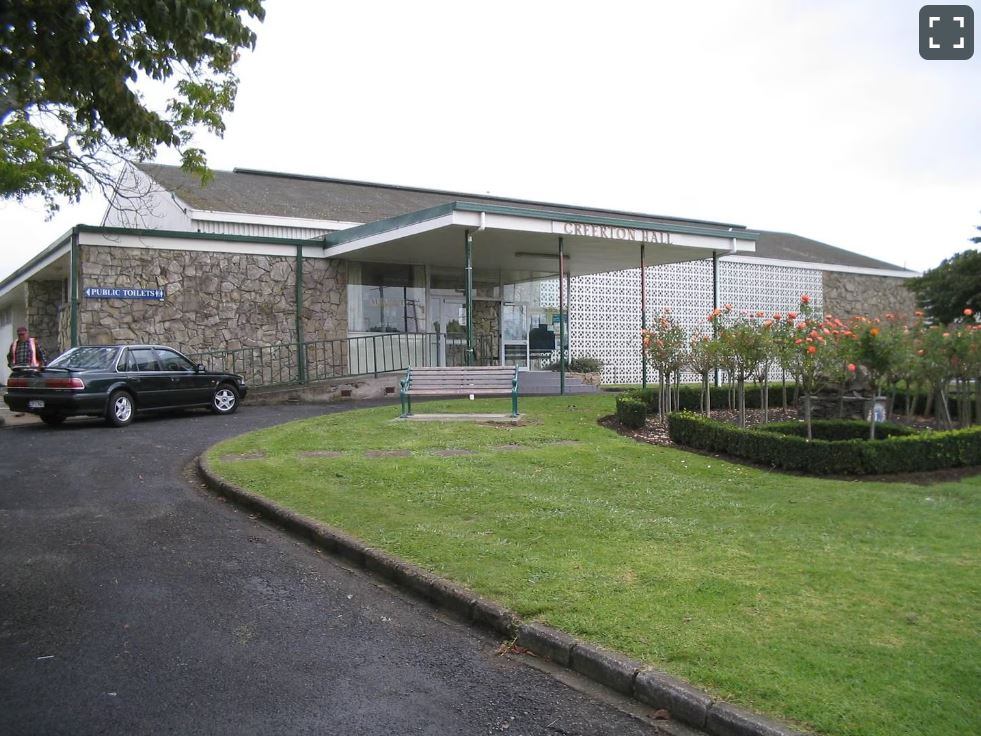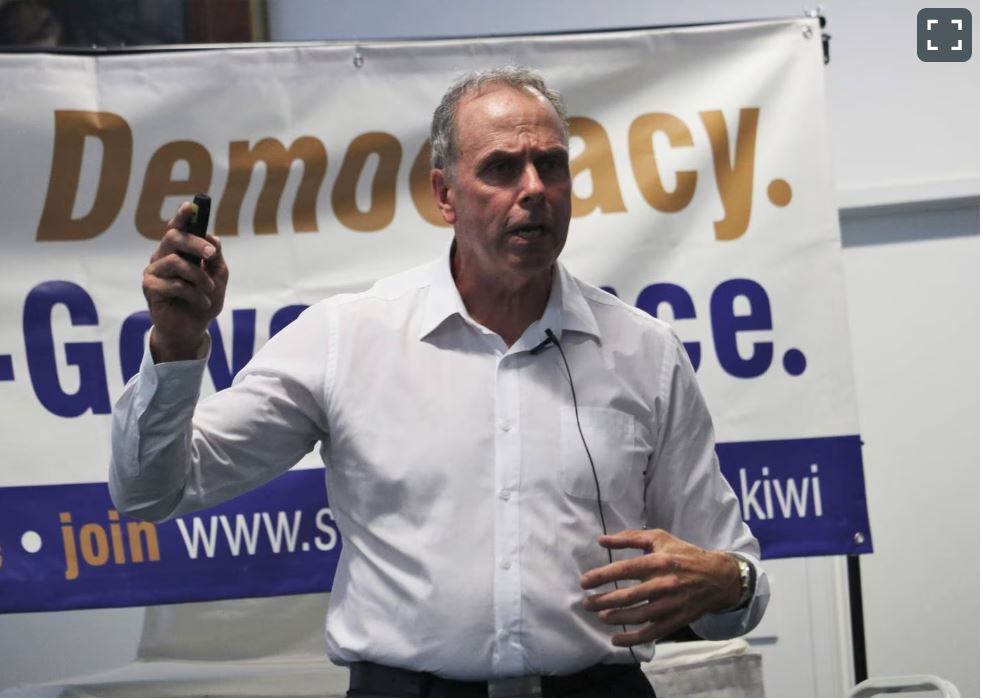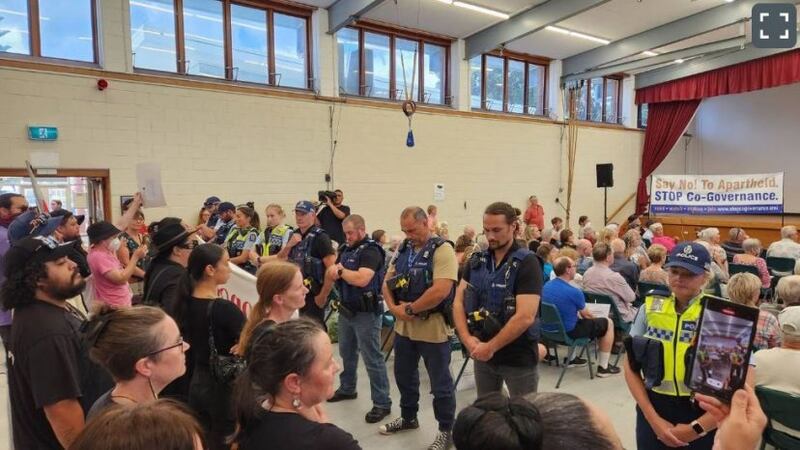Police separate protestors at the Ōrewa leg of Julian Batchelor's 'Stop Co-Governance' tour. Photo: Jake Law / NZ Herald
By Kiri Gillespie and Laura Smith, Bay of Plenty Times
Tauranga City Council is standing by its decision to allow a controversial and “offensive” anti-co-governance tour to use one of its venues despite pressure to pull out.
The council has insisted tour organisers provide their own council-approved security services “to ensure the safety” of the local community and warned it would monitor the tour for signs of deviation from “free speech”.
The Stop Co-Governance Tour has already attracted protests and controversy for its likening co-governance to apartheid.
Co-governance is already in operation in parts of New Zealand, including Tauranga with Ngā Poutiriao o Mauao, which is the joint management board for Mauao made up of representatives of the Mauao Trust and city council.
An online petition to New Zealand Attorney-General David Parker calling for the tour to be canned, saying it is in breach of the New Zealand Bill of Rights and Humans Rights Act, attracted more than 5000 signatures. It also expressed a view the tour was inciting racial disharmony.
At the tour’s Orewa meeting this month, police were needed to separate counter-protesters and attendees at several venues listed on its tour have since either cancelled, refused a booking, or haven’t received a booking.
In Tauranga, tour organisers booked the Historic Village Hall in Greerton and the Mount Maunganui Community Hall on April 22 and 23.
The city council oversees the running of the village hall.
Council general manager of corporate services Alastair McNeil told the Bay of Plenty Times it was committed to being an inclusive city that recognised and promoted partnerships with iwi.
“The beliefs expressed by the Stop Co-Governance campaign do not align with the community outcomes we are seeking to achieve and we suspect the general anti-co-governance rhetoric is offensive to many in our community,” McNeil said.

Greerton Village Hall is the venue for a controversial Stop Co-Governance Tour. Photo / NZME
However, councils could not make venue-hiring decisions based solely on value judgments about what kinds of ideas or opinions are deserving of a forum, as this would go against the right to freedom of expression, he said.
For now, the bookings would remain in place, but the council and its partner Bay Venues would be “closely monitoring” the campaign “and we are open to changing our position if there is evidence that the balance has shifted away from ‘free speech’”.
“Additionally, we will work with other councils to understand how the tour has played out in their areas,” McNeil said.
As of Friday morning, the council had received five emails from people expressing their disappointment and raising concerns about safety.
“We have instructed the event organisers to provide (at its own cost) a council-approved security service at the Historic Village Hall event to ensure the safety of our village community,” McNeil said.
Mount Maunganui Community Hall is set to review its booking at its next committee meeting.
Rotorua Bowling Club has cancelled its booking. Club manager Nick James said this was “a result of being made aware of the content of the event and the volatility of the presentation”.
Newstalk ZB reported on Friday that, despite its venues being listed on the group’s website, Timaru District Council had not received a booking and, while Taupō District Council had not either, it said its responsibility as a public venue holder was to make them available for everyone to use.

Stop Co-Governance Tour organiser Julian Batchelor at the Kerikeri meeting. Photo / Peter de Graaf
Mikaela Matenga was among those who protested at previous roadshow events, including in Ōrewa last week.
Matenga (Tūhourangi, Tūwharetoa, Rongowhakaata, Te Arawa) said Rotorua was home, her tūrangawaewae, and she had whānau there.
She believed the events that tour organiser Julian Batchelor was holding spread misinformation and fear, and that he was using the events as a vehicle to be anti-Māori and spread notions of white supremacy.
This information, she said, included that he was telling his audiences co-governance would result in the country being controlled by tribal authority.
She said he described Māori culture as archaic.
Her own definition of co-governance was that it allowed Māori to make decisions for Māori.
Speaking to Local Democracy Reporting, Batchelor referred to the Stop Co-Governance website for both his book and his blog posts when asked what co-governance was to him, and what his concerns about it were.
A blog posted on the site yesterday claimed: “Co-governance is a code for the takeover of New Zealand by tribal companies and their representatives, the end of democracy, the installation of apartheid and seperatism [sic] into everyday life, leading eventually to full blown government by tribal rule”.
Batchelor said his concerns included a belief the government was using a fraudulent version of the Treaty of Waitangi.
He said securing venues had become more challenging recently but said the group would simply find another venue to replace the one it lost in Rotorua. Batchelor claimed support was growing and forecast 500 people would attend the Rotorua event.
He claimed some venue owners had been contacted by activists and told the event would result in them “smashing” it up. He said no one and no property had yet been damaged.
Batchelor welcomed those with opposing views to attend: “That’s what free speech is about.”
Batchelor was emailed Matenga’s comments for a response but did not respond by deadline. When he spoke to Local Democracy Reporting on the phone, he said he did not have time to go through all points.
The only point able to be put to him was her belief that the events spread misinformation and fear, that he was anti-Māori and spread notions of white supremacy.
He said he would ask her to give examples.
Earlier this month, Batchelor said in an emailed statement to the NZ Herald he was not a racist.
Instead, he said the Government and “elite Maori” were guilty of racism by “signalling” to Māori that it was “a superior race of people”, and in doing so were “turning Māori into the biggest bunch of racists this country has ever known”.
Minister Parker told Local Democracy Reporting in response to the petition that it was an election year, there would be a lot of people saying things others did not like and his views were irrelevant.
”We’re a democracy so people have the right to express their views providing they do not break the law.”
However, Parker urged people to express their views respectfully and for those who opposed them to do so lawfully.
Prosecutions and issues of public order were a matter for the police, and a prosecution alleging the offence of inciting racial disharmony could only be initiated with the consent of the attorney general, he said.

